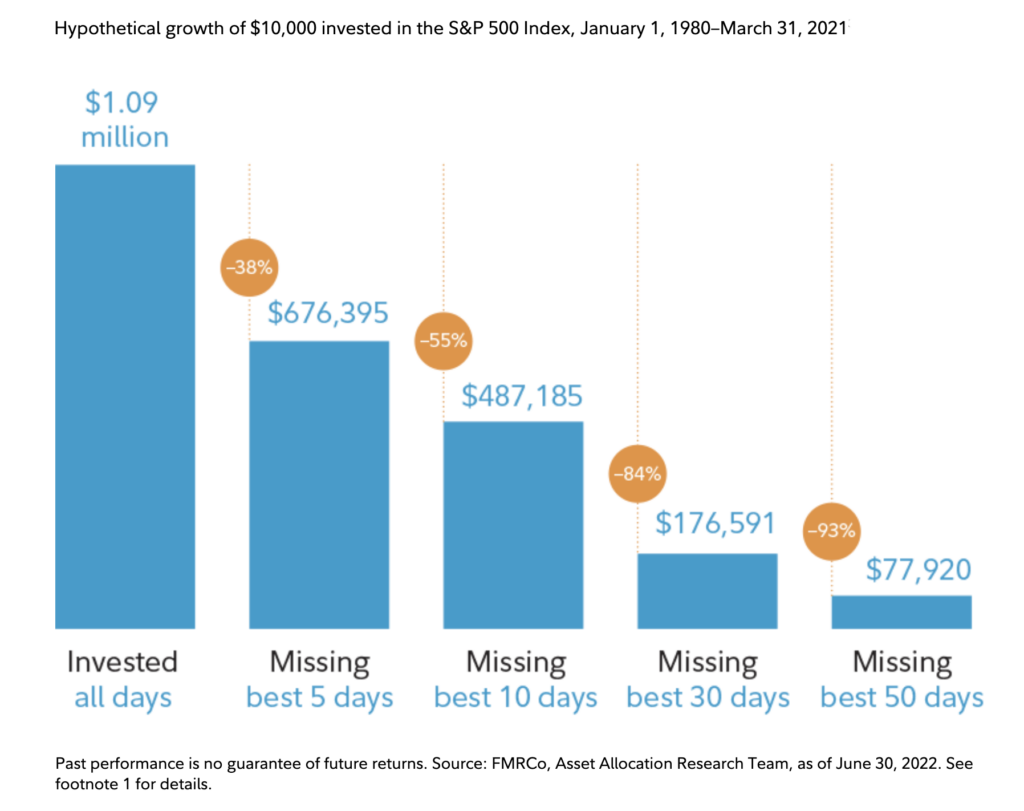By Kaitlyn Laney, CFP®
3 Effective Risk Management Strategies for Your Investment Portfolio
Managing risk is an important part of investment management, helping you navigate the ever-changing landscape of financial markets. By analyzing the current business cycle and various stock market conditions, you can identify potential risks that may arise and proactively address them. This allows you to adapt your strategies to changing market dynamics and mitigate potential pitfalls and diversify your portfolio across different asset classes, sectors, or geographic regions while employing hedging techniques to offset potential losses.
By closely monitoring market conditions and macroeconomic indicators, you can make more informed decisions regarding asset allocation, sector rotation, and the timing of your investments. This dynamic investment strategy ensures the portfolio remains aligned with your objectives, optimizes returns, and manages risk.
This article will explore three actions to protect your investments further and enhance your risk management strategy. By incorporating these strategies into your investment approach, you can strengthen your risk management framework and increase the likelihood of achieving your financial objectives.
1. Ensure Sufficient Liquidity in Your Portfolio
Prepared investors view market downturns as opportunities to capitalize on undervalued assets and potentially generate higher future returns. However, you must have sufficient cash reserves in your overall portfolio to take advantage of these opportunities. The amount of savings you should have depends on your monthly expenses and financial obligations.
To determine the appropriate amount of cash reserves you need for liquidity, you must clearly understand your housing costs, including mortgage or rent payments, property taxes, and maintenance expenses. Likewise, factoring in your food expenses, transportation costs, utilities, and other essential expenses is essential for accurately estimating your monthly liquidity needs.
You should also consider personal factors such as the city you live in and your financial responsibilities towards others. If you live in a high-cost city or if you have people depending on you financially, you may want to have a larger liquidity fund to cover unforeseen circumstances.
Regardless of your individual circumstances, it’s a good idea to have enough resources to support yourself and your family for several months if need be. This ensures you have a safety net to navigate unexpected financial challenges, job loss, or prolonged market downturns. Maintaining a sufficient liquidity fund allows you to manage risk more confidently and take advantage of any opportunities that you see in the market.
2. Don’t Manage Financial Risk Alone
Collaborating with a skilled and experienced Financial Advisor or Certified Financial Planner (CFP®) can be instrumental in achieving your financial goals. They can help you develop a comprehensive plan that prepares you for financial volatility and ensures your portfolio’s resilience. According to a Vanguard survey of 1,500 investors, those who worked with a personal advisor reported feeling 16% closer to achieving their financial goals than individuals managing investments without guidance. This emphasizes the significant impact that a professional advisor can have on your financial journey.
That same survey revealed that clients relying solely on digital advice felt they were only 5% closer to their financial objectives. While digital platforms can offer convenience and accessibility, a human advisor’s personalized guidance and expertise can make a substantial difference in navigating the complexities of the financial markets, especially during bearish market conditions.
A financial advisor can help you see through the turbulence of a bearish market and make decisions with confidence. With a well-thought-out and diligently executed plan, you have a strategy to weather adverse financial conditions and perhaps even emerge stronger on the other side. A good financial advisor can provide valuable guidance and support to help you make informed decisions, maintain a long-term perspective, and avoid impulsive actions driven by volatility. They may also help you navigate challenging times more confidently by assisting with asset allocation, managing risk, portfolio diversification, and identifying investment opportunities amidst turbulence.
3. Adopt a Long-Term Approach to Managing Risk
When making changes to your investment allocation, it is essential to adopt a holistic approach that considers not only market fluctuations but also the changes in your life circumstances. While it can be tempting to react to short-term market movements, taking a long-term perspective and aligning your investment decisions with your unique situation can lead to more favorable outcomes and increased financial success.
Life has transitions and milestones, such as buying a home, starting a family, changing careers, or retirement planning. Each of these events can have a significant impact on your financial goals and financial risk tolerance. Therefore, you should regularly reassess your investment allocation to ensure it remains in sync with your evolving needs and objectives.
By focusing on changes in your life, you can make informed decisions tailored to your circumstances. Doing so may involve adjusting your asset allocation to reflect your changing financial responsibilities, such as increasing your exposure to safer investments as you approach retirement or reallocating funds to accommodate a new financial goal.
Maintaining a commitment to your investment strategy is critical, regardless of short-term market fluctuations. Emotions can often cloud rational decision-making, leading to impulsive actions that may harm long-term financial success. By creating a well-designed plan and sticking with it, you may avoid knee-jerk reactions and potential pitfalls that might impede your progress toward achieving your financial goals.
A recent Fidelity study analyzing the hypothetical growth of $10,000 invested in the S&P 500 Index, January 1, 1980, through March 31, 2021 emphasized the benefits of tuning out the noise. Missing out on best days can be costly, as shown by the chart below.

It is important to remember that successful investing is a journey that requires discipline, patience, and a focus on the big picture. By maintaining a professional approach and relying on sound financial advice, you can navigate the ups and downs of the market with confidence. A well-constructed investment plan, based on thorough research and analysis, provides a solid foundation for long-term success and peace of mind.
Protecting Your Investments
Protecting your hard-earned money in today’s dynamic financial landscape requires a proactive and multifaceted approach beyond simply stashing it away. It involves careful risk management, sufficient liquidity, professional guidance from a trusted financial advisor, and a long-term plan.
Protecting and growing your wealth requires expertise, discipline, and a commitment to your long-term investment strategy. By following these guidelines, you can confidently navigate the intricacies of the financial world and protect your money in the future.
If you’d like to learn more about how Trek Wealth Solutions can help you manage risk and invest with confidence, we’re ready to chat with you.
Book a meeting with Kaitlyn Laney.
Kaitlyn Laney is a dedicated Certified Financial Planner serving Greater Scottsdale, Arizona. She emphasizes taking action and avoiding procrastination when advising the individuals, families and small business owners she works with. With more than a decade of experience, she has put countless clients in what she calls “the financial front seat,” – helping them to enjoy their life while ensuring their retirement and legacy are protected. Read more about Kaitlyn.
Footnote 1: The hypothetical example assumes an investment that tracks the returns of the S&P 500® Index and includes dividend reinvestment but does not reflect the impact of taxes, which would lower these figures. There is volatility in the market, and a sale at any point in time could result in a gain or loss. Your own investing experience will differ, including the possibility of loss. You cannot invest directly in an index. Graph Source Link. Other sources: Vanguard and Escalent, 2021
Advisory Services offered through Sowell Management, a Registered Investment Advisor. Trek Wealth Solutions is a division of Sowell Management. The views expressed represent the opinion of Trek Wealth Solutions. The views are subject to change and are not intended as a forecast or guarantee of future results. This material is for informational purposes only. Information provided on this website is not intended to be, nor should it be construed or used as investment, tax or legal advice, a recommendation, or an offer to sell, or a solicitation of an offer to buy, an interest in any security or cryptocurrency. Past performance is not indicative of future results, and investing in securities involves risks, including the potential loss of principal. Be sure to consult with a tax, legal, or financial professional before implementing any investment strategy. While Trek Wealth Solutions and Sowell Management believe the information to be accurate and reliable, we do not claim or have responsibility for its completeness, accuracy, or reliability. Statements of future expectations, estimates, projections, and other forward-looking statements are based on available information and Trek Wealth Solutions and Sowell Management’s view as of the time of these statements. Accordingly, such statements are inherently speculative as they are based on assumptions that may involve known and unknown risks and uncertainties.


